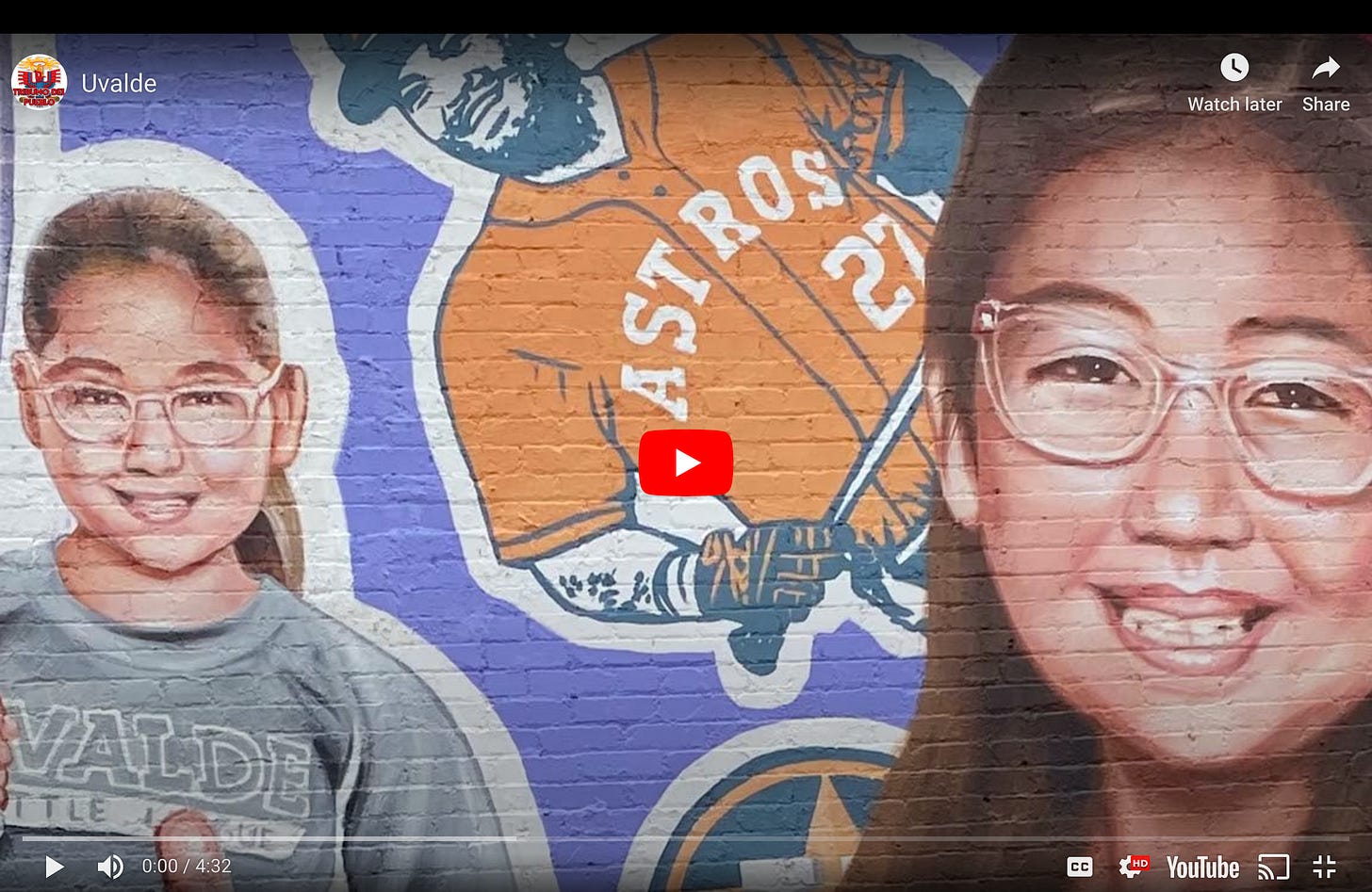This week marks the one-year anniversary of the massacre of 19 children and two teachers at the Robb Elementary School in Uvalde, Texas. It also marks the 100th birthday of Henry Kissinger.
I’m struck by the connection between the two.
Let’s start with the figure celebrated as a peacemaker by some, while condemned as a war criminal walking free by others.
Admirers of Kissinger credit him for pioneering the policy of détente with the former Soviet Union, orchestrating an opening of diplomatic relations with the People's Republic of China, and creating the practice of "shuttle diplomacy" as a means to end the Yom Kippur War.
They will also tell you that Kissinger negotiated the Paris Peace Accords, which finally brought an end to US involvement in the Vietnam War. What they don’t say is that the Vietnam War might have ended five years — and many millions of lives — earlier, in 1968, if back-channel Republican Party diplomacy, in which Kissinger played a key role, hadn’t scuttled the first near-signing of the Paris Peace Accords by the administration of Lyndon B. Johnson.
Kissinger and others worried that if Johnson achieved peace in Vietnam and brought US boys home, it would result in certain electoral victory for Hubert Humphrey, Johnson’s VP and Richard Nixon’s rival for the US top job that year. So, Republican operatives sabotaged Johnson’s efforts, hopeful that a frustrated US electorate would turn to their party and candidate as the next best hope for ending the war.
Once, in the White House, however, Nixon expanded the war in Vietnam and green-lighted the covert, five-year bombardment of Cambodia at the direction of Henry Kissinger, his National Security Advisor. This never-declared war characterized by relentless US firepower rained upon a defenseless and peaceful population created so much trauma and so much displacement, it basically drove terrorized farmers into the hands of the Khmer Rouge, leading to the brutal butchery of three million people.
In addition to the Cambodian bombing and genocide, Kissinger’s fingerprints can be found wherever the Cold War “Dirty Wars” were fought — conflicts fomented and funded by the US that brought death and destruction to Pakistani, Chilean, Argentine, and Central American lives throughout the ‘70s and ‘80s.
Kissinger’s key historic role, however, was not merely enabling 20th-century genocide. It is under him that the US military-industrial complex found the feet upon which it now stomps around the world, inflicting violence in endless overt and covert contests. The US military-industrial complex, moreover, is inextricably linked to the gun violence that has plagued the US for decades and resulted in 650 mass shootings and 40,000 deaths in the US since the Uvalde massacre.
The blood of those 21 lives cut tragically short just a year ago, therefore, saturates the hands of the very birthday boy who made it possible, back in 1968, for US terror to blunder into communities worldwide.
In December 2022, Witness at the Border’s Journey for Justice passed through Uvalde to meet with the families impacted by Kissinger’s legacy. Today, I share with you a four-minute video made by our friends at Tribuno del Pueblo to honor the innocents — and innocence — lost on May 24, 2022.
Meantime, as I work round-the-clock now to bring to a close my manuscript for CROSSING THE LINE: FINDING AMERICA IN THE BORDERLANDS, I urge you to read my latest research discovery: BLOOD GUN MONEY, HOW AMERICA ARMS GANGS AND CARTELS, by the Substack author of
.Grillo goes deftly and deeply into the connections between drugs and guns in the US while giving context to why the US will not, and seemingly cannot, pass common-sense gun reform.
And for more on Kissinger's role in Cambodia, don’t miss the latest investigative piece Blood on His Hands by Nick Turse for The Intercept.
More soon,
Sarah




